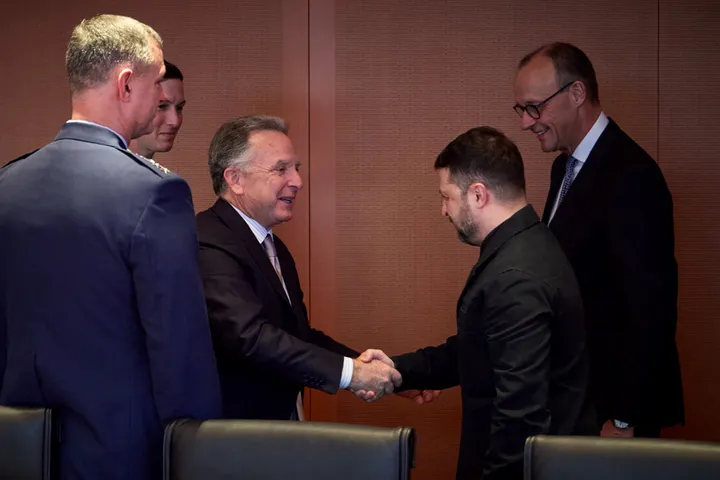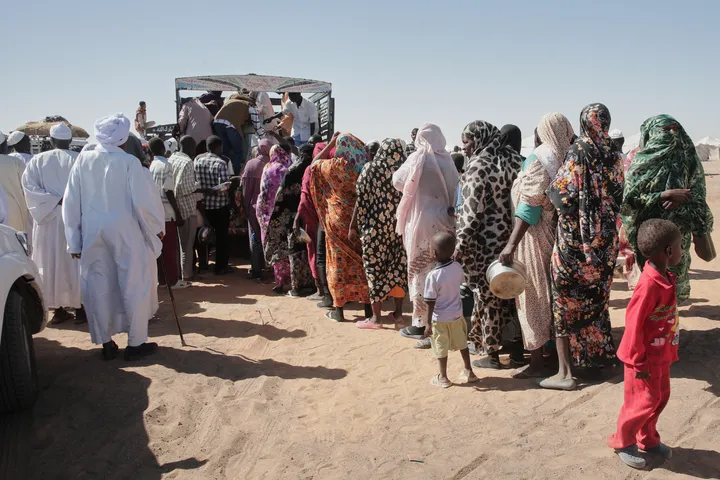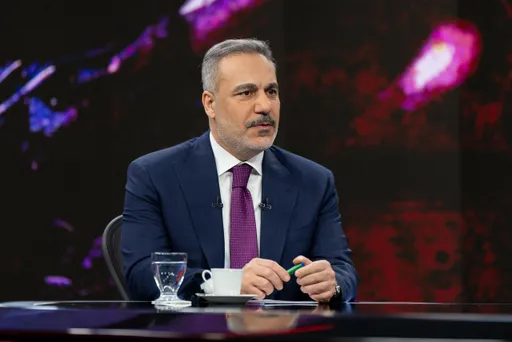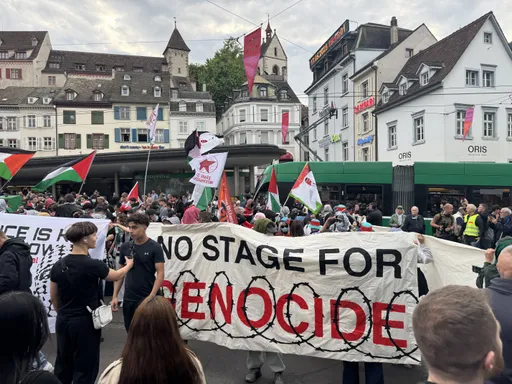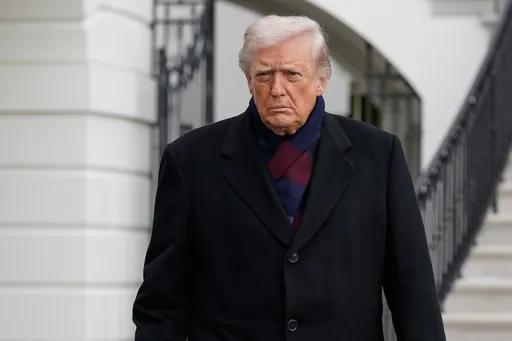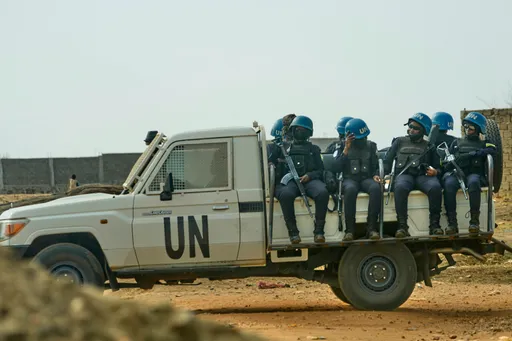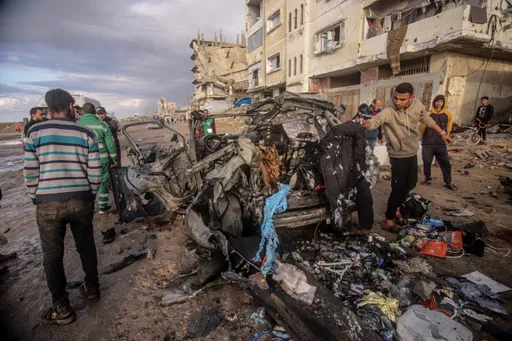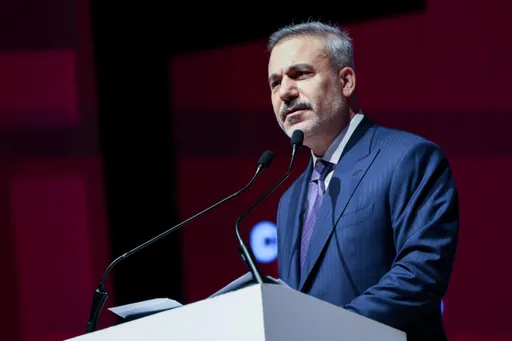France has steered away from the unified NATO position with regards to the Libyan conflict, not only tacitly supporting Khalifa Haftar, but also by attempting to legitimise him in the eyes of the international community. All this despite the warlord waging a full-blown war against the UN-recognised Government of National Accord (GNA).
Turkey's Foreign Minister, Mevlut Cavusoglu, slammed the Macron administration on Tuesday for working against the interests of NATO.
"Nato sees Russia as a threat but a NATO ally France makes effort to increase Russia’s presence in Libya," he said.
Cavusoglu's verbal snub comes a day after the French President accused Ankara of playing a "criminal role" in the conflict. Despite mounting evidence showing France lending support to Haftar, Macron washed his hands of the evident dissension, saying that his country did not support the Libyan warlord, a widely reported phenomenon which he described as "the world's misunderstanding".
In light of the denial, we compiled a list of French interventions in the Libyan conflict that portray how deeply the Macron administration has become involved in arming and managing Haftar.
2015
France has often feigned ignorance on the subject of providing arms and money. But reports on the country’s active involvement in the conflict came from 2015 onwards, the time Haftar emerged as a troublemaker
France was quick to assist Haftar and his allies by sending advisers, secret agents and special forces to eastern Libya, while offering little to no support to the GNA.
Knowing that he was hellbent on reversing whatever little peace and stability the UN-backed government had tried to secure in Libya, France still trained Haftar’s militias, leading many to question whether it was an honest broker seeking to end hostilities.
2016
In February, Haftar officially told a French newspaper that France supported him “morally and from a security point of view.”
Paris's persistent denial of its support of the warlord became harder to digest when three undercover French soldiers died in a helicopter crash in Benghazi the same year.
2017
Jean-Yves Le Drian, France's foreign minister in 2017, reportedly convinced President Macron that Libya was a "low-hanging fruit" and that Haftar was the man to bet on. Le Drian is known to be the architect of France’s Libya policy.
When Egyptian forces began air strikes in Libya after Daesh fighters killed 21 Egyptian Coptic Christians, the strikes were not limited to the terrorist group, but targeted militias that fought against Haftar and supported the UN-backed GNA. Le Drian, at that time, publicly expressed support for the strikes.
In contradiction to the UN's position on the Libyan conflict, which was to assist the UN-backed Sarraj government and involve other rival forces for a peaceful transition of power, French Foreign Minister Le Drian publicly never hesitated to express support for the Egyptian air strikes against the GNA.
2018
Many regional experts say France's policy towards the tiny North African country is largely driven by its economic interests rather than spreading democracy. For Macron, therefore, shaping a warlord into a strongman who can deliver on the promise of supplying oil to France, is an advantageous option for the administration.
In the same year, reports also emerged that France sent special forces to Libya in order to support warlord Haftar’s offensive against two coastal towns - this at the cost of serious destruction and credible suspicions of war crimes.
Sources suggested that the French from the Directorate-General for External Security did not take part in the fighting, though they were in operation on the front line. Estimated at a few dozen, they provided advice, training, and information.
Macron's insistence on involving Haftar in the Paris Summit also sparked criticism. According to Libya expert, Jalel Harchaoui, it was a stark reminder that "France is helping transform him from a rogue warlord into a legitimate political actor, thereby encouraging his plans to conquer and rule the country as a whole.”
2019
According to French newspaper Le Monde, France has gone out of its way to ensure the warlord is fully armed, even deploying French special forces for the training of his militias.
Along the way, Paris ended up antagonising Italy, a NATO partner. Matteo Salvini, the country’s Deputy Prime Minister, last year accused France of supporting Haftar and showing "no interest in stabilising the situation".
Salvini went on with his critique and declared that its European neighbour was going against NATO's position on Libya because its oil interests were opposed to those of Italy.
In April, Al Jazeera’s report emerged that armed men crossing from Libya alleged to be French spies. The media outlet obtained copies of the passports belonging to the French team arrested in Tunisia. Furthermore, Tunisian border guards discovered some sort of communication devices with the group that may be linked to Haftar's militia.
The French radio station, Radio France International, also reported that 15 French intelligence officers had arrived in mid February in the city of Gharyan, 100km southwest of the Libyan capital, to aid Haftar in his preparation for the attack on Tripoli. This is all according to a Libyan source close to the government.
In July 2019, an investigation led by the Pentagon concluded that Paris had supplied American-made anti-tank missiles to Haftar's forces. Each missile is worth $170,000 and the US only sells it to "close allies," such as France.
2020
This year, the UN-recognised government of Libya slowly and steadily regained the control of territories lost to warlord Khalifa Haftar since 2015. France, a permanent member of the UN Security Council and NATO member, was not happy about it.
Paris’s Libya policy seems to be coming under scrutiny both domestically and internationally. In view of decisive defeats faced by Haftar, Russian President Vladimir Putin and his French counterpart, Emmanuel Macron, held a phone call last Friday, in which they discussed Libya. The conversation took place a few days after Macron spoke critically of Turkey's role in Libya, accusing Ankara of playing a "dangerous game."
As a NATO member, France even prefered to engage in talks with Russia as both countries have sided with Haftar and therefore against the internationally recognised government.
Recently, Bloomberg reported that the reason why Macron holds a hostile attitude against Turkey, is to cover his failures in Libya. In an article titled "Turkey Has Eclipsed Emmanuel Macron's Libya Dreams," the media outlet stated that "Macron’s pronouncements on Libya have devolved from hyperbole and hypocrisy to something approaching hysteria."
Blaming Macron for supporting a "suspected war criminal" in the war-torn country, the article expressed that "all Macron had really done was to legitimize the rebel commander," in reference to Haftar.


